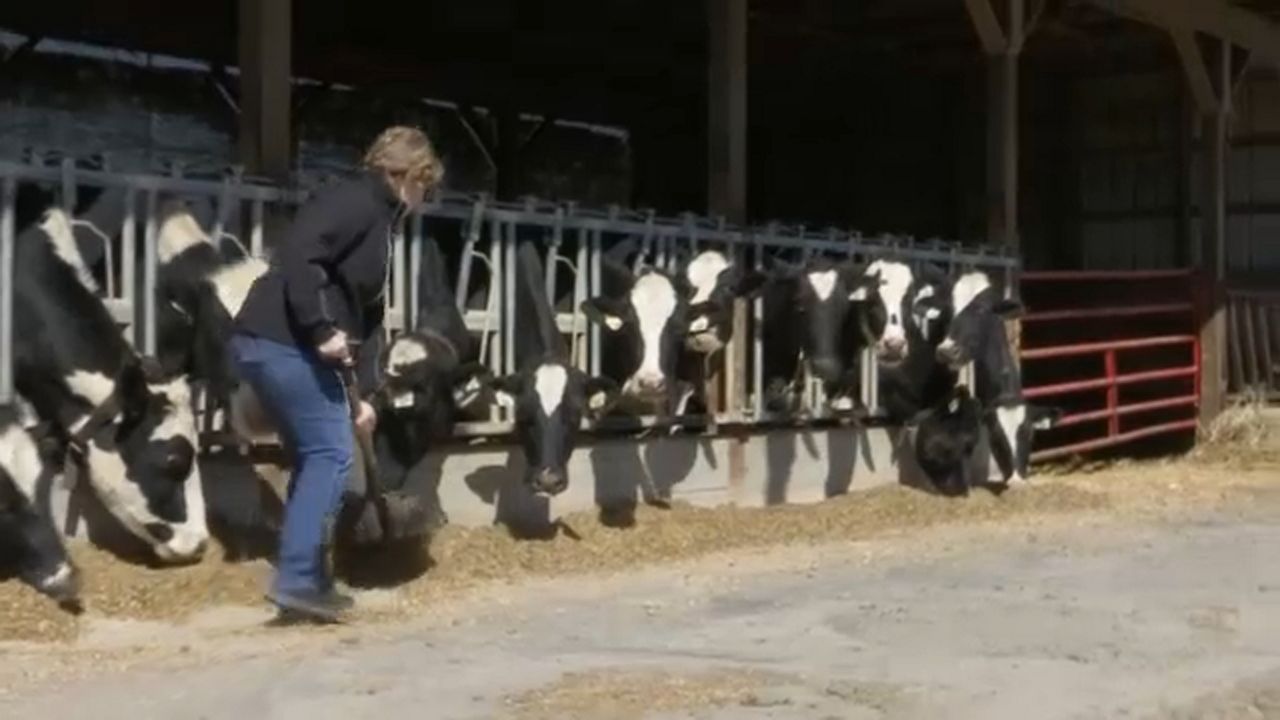When the COVID-19 pandemic began, a lot of us had to find a new normal, but not everyone had the opportunity to do so. Dairy farmers still have to milk their cows twice a day or else they'll get sick, and they still found a way to do it and give back to their communities.
"We milk 80 cows, we also crop about 250 acres of corn and alfalfa and oats," said Patty Bikowsky, a dairy farmer in Madison. "We take care of the soil, and the cows and anything else that takes care of on a farm."
Bikowsky still wakes up every day before the sun. Her cows don't take days off, so neither does she
"We have to feed them no matter what," she said. "Sundays, bad weather, hurricane, snowstorm, pandemic, the cows need to be fed."
Bikowsky said the first week of the shutdown, people were buying it like crazy. As time went on, that started to change.
"50 percent of our cheese goes into food service, and 60 percent of all the butter. When you shut that down, that's a lot of milk that didn't have a home," she said.
Instead of just dumping the leftover milk, dairy farmers like Bikowsky took matters into their own hands, processing and bottling as a group and getting milk to food banks.
"When we see people in need, we're there to help out," she said.
Milk giveaways have been popping up all over Central New York for a few reasons. It means less waste for farmers, more healthy milk in the diets of Central New Yorkers, and it brings a community together.
"This is what out community needed," Bikowsky said. "If it costs us a little more, even though the price of milk has been a losing battle for us for the last four years, we just knew it was the right thing to do."
More than anything, it shows the character of Central New York dairy farmers, the type of person still willing to wake up at 3 a.m. during a pandemic to keep their animals and their community healthy.
"If everybody wants to eat, the farmers better keep doing what we've always been doing. So that's all I can say, we just have to keep doing it," Bikowsky said.
So far, Bikowsky and her partners in our region have donated more than 150,000 gallons of milk. She says the best way to support farmers moving forward it to keep drinking milk, and buying as local as you can.



